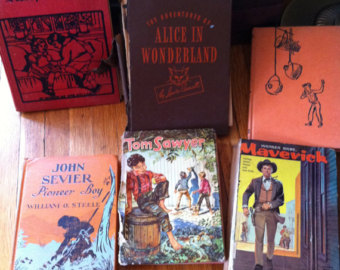Discerning Language through Orwell’s 1984
I have often heard people who delve into non-fiction say that they are realists and that fiction is merely a zone for the escapists. The point is, fiction never divorces reality; it either builds on it or opposes it. In fact, it is what intensifies the insignificant truth to make it significant. It makes issues matter. And some of those books become catalysts in helping you dig and unravel answers you’ve been looking for, which have apparently been too obvious to others. Such has been the nature of my confusion as to why does the public go berserk when it comes to language, the question of deciding the national or an official language to be precise. The dominance of a language by another and the eventual decline of the dominated has been as natural as the laws of existence. The dissatisfaction in various sects as to the selection of the national language to the extent of war has left me baffled. Books have not failed to bring out the phenomena, but few have managed to give me a powerful reason. Anita Desai portrays a dying Urdu culture which was being drowned by Hindi in ‘In Custody’. Sylva Durai bases his novel ‘Funny Boy’ on the Sri Lankan civil war between two language groups, namely Tamil and Sinhala, after the replacement of English by Sinhalese. Am I convinced for the validity of the uproar which followed? No.
1984 (no it has got nothing to do with the 84 riots in India), an exquisite piece of ‘Dystopian’ or negative Utopian literature, which although predicts the grave future of a socialist society, stands true for any totalitarian regime. The story unfolds under the umbrella of power dynamics but in the process builds on substantial elements of a society, a significant focus being on the new language introduced, called the Newspeak. Newspeak reduces the vocabulary of English language to a bare minimum with an extreme reduction in the number of verbs and adverbs. The other words, apart from actions like walk, talk, run, sit, speak etc, are given a narrow definite meaning propagating the principles of the ruling government. New words with the same intention are introduced and old ones are either made invalid or made extremely rigid.
“The word free still existed in Newspeak, but could only be used in such statements as “The dog is free from lice” or “This field is free from weeds.” It could not be used in its old sense of “politically free” or “intellectually free,” since political and intellectual freedom no longer existed even as concepts, and were therefore of necessity nameless.” – 1984, Principles of Newspeak. The underlying agenda being the vaporization of subjectivity.
Thus, the common perception of language being an ‘expression’ or a ‘media’ for thought is reversed into language being a ‘controller’ of thought itself. One realizes that the spectrum of thought is limited by a language, since even when one doesn’t speak out aloud, one ‘thinks’ in a language, implying language to be a basis of thought, and thus its confiner. You don’t just need language to express it, but also to create it in the first place.
Therefore, 1984 reverses the role of language and establishes it as a political tool. While doing so it reiterates the necessity of the looseness with which we use logic in language, as that is what serves for subjectivity, which is a fundamental element for every individual and society as a whole. Thus, through an extreme form of anarchical fiction, it clarifies the obvious reality to me.




